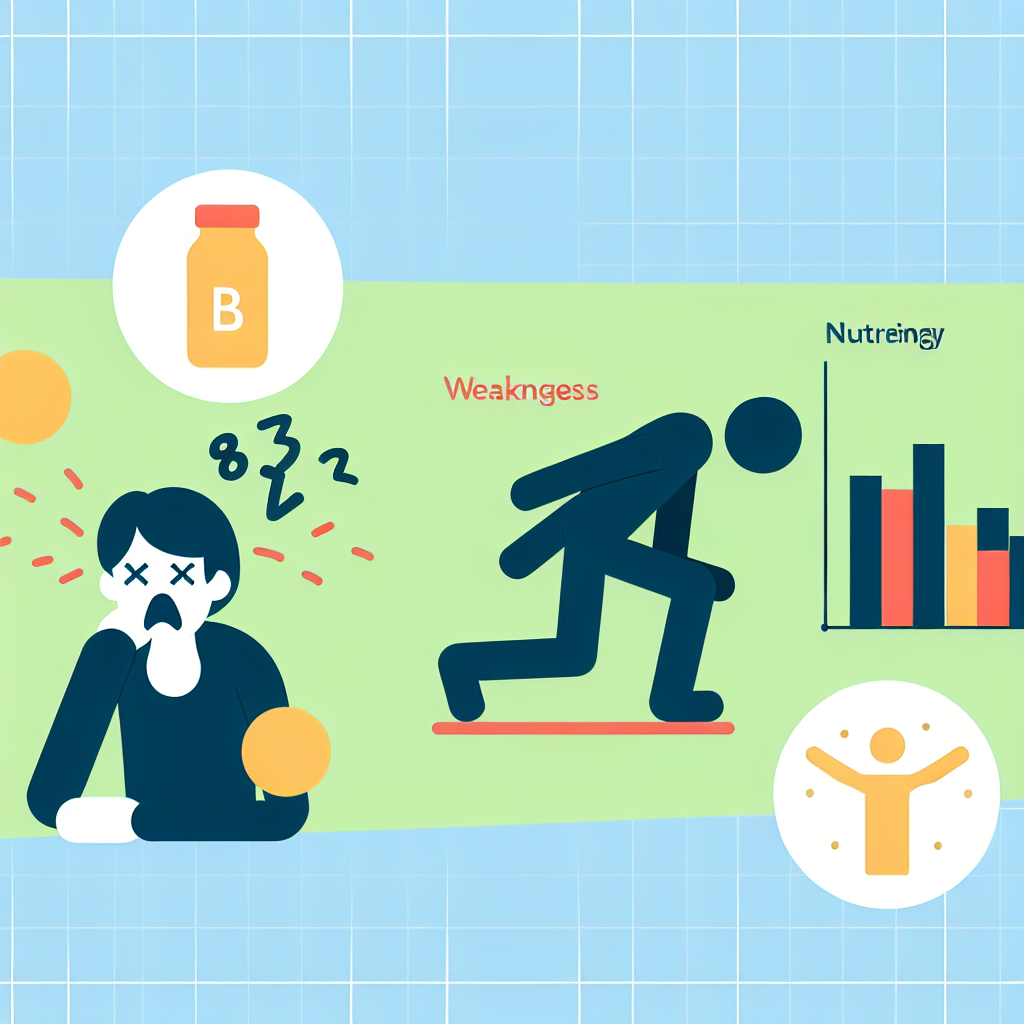When was the last time you felt truly energized and clear-headed? If you’ve been feeling tired, sluggish, or unable to focus, the problem might not just be stress or poor sleep. These could be subtle symptoms of a vitamin B deficiency—an issue that’s more common than many people realize.
Vitamin B plays a central role in keeping your body functioning at its best by producing energy, supporting brain function, and creating red blood cells. In this complete guide, we’ll explore the signs, causes, treatment options, and prevention methods for vitamin B deficiency. Whether you’re here to troubleshoot a health concern or simply want to learn more, this is the information you need to take proactive steps toward better health.
What Is Vitamin B and Why Does Your Body Need It?
Vitamin B isn’t one single nutrient—it’s actually a family of eight essential vitamins, each with its own role in the body:
- Vitamin B1 (Thiamine): Helps convert food into energy and supports nerve health.
- Vitamin B2 (Riboflavin): Promotes healthy skin and protects cells from oxidative stress.
- Vitamin B3 (Niacin): Supports digestion, skin health, and brain function.
- Vitamin B5 (Pantothenic Acid): Critical for synthesizing hormones and metabolizing fats.
- Vitamin B6 (Pyridoxine): Regulates mood and supports brain development.
- Vitamin B7 (Biotin): Enhances hair, skin, and nail health.
- Vitamin B9 (Folate): Important for DNA synthesis and fetal growth during pregnancy.
- Vitamin B12 (Cobalamin): A key nutrient for red blood cell production and neurological health.
If any of these vitamins are deficient, the body’s natural processes can slow down, leading to troubling symptoms.
Recognizing the Symptoms of Vitamin B Deficiency
Common Symptoms to Watch For
Vitamin B deficiency can creep up quietly. You might feel tired for weeks and blame it on your schedule, or notice small changes like difficulty concentrating or low mood. Below are some of the most common warning signs:
- Fatigue: Feeling unusually tired despite adequate sleep.
- Brain fog: Difficulty concentrating or struggling with memory lapses.
- Mood changes: Unexplained irritability, anxiety, or depression.
- Numbness or tingling: Particularly in the hands and feet.
- Digestive issues: Poor appetite or occasional nausea.
Symptoms by Specific B Vitamins
Different vitamin deficiencies cause distinct health effects:
- Vitamin B12: Symptoms include pale skin, fatigue, tingling sensations, memory loss, and anemia. If untreated, it may cause permanent nerve damage.
- Vitamin B6: Can lead to depression, confusion, cracked skin, or a weakened immune system.
- Vitamin B1: Often causes muscle weakness, trouble with coordination, or nerve pain.
- Vitamin B9: Particularly important during pregnancy—it helps prevent neural tube defects in infants. A deficiency can also cause fatigue and irritability.
If you’re experiencing these symptoms, it could mean your vitamin levels need attention.
Common Causes of Vitamin B Deficiency
Why Does Vitamin B Deficiency Happen?
There are several reasons vitamin B levels might drop. The most common causes include:
- Poor diet: Eating few whole grains, lean protein, vegetables, and dairy can lead to deficiencies.
- Malabsorption disorders: Conditions like Crohn’s disease, celiac disease, or chronic alcoholism impair nutrient absorption.
- Pregnancy: The body’s demand for vitamin B increases during pregnancy, especially folate.
- Aging: As adults age, absorption of vitamins like B12 declines naturally.
- Vegetarian or vegan diet: Vitamin B12 is primarily found in animal products, making it harder for people on plant-based diets to meet their needs without supplementation.
Risk Factors to Keep in Mind
Certain individuals are more prone to deficiency, including pregnant women, older adults, and those with gastrointestinal conditions or restrictive diets. Recognizing these risk factors can help prevent complications down the road.
How Do You Diagnose a Vitamin B Deficiency?
Tests and Diagnosis Methods
When symptoms persist, it’s important to consult a healthcare provider. They may recommend the following:
- Blood tests: A simple test can measure your levels of specific B vitamins, such as B12 or folate.
- Physical exams: Some signs, like pale skin or neurological symptoms, might be identified during an exam.
- Dietary and lifestyle review: Your doctor may ask about your eating habits, health conditions, and whether anything in your lifestyle raises your risk of nutrient deficiencies.
When to Seek Professional Help
If symptoms like fatigue, tingling, or difficulty concentrating persist for several weeks or worsen over time, don’t ignore them—early intervention could prevent longer-term health issues like nerve damage or anemia.
Treating and Preventing Vitamin B Deficiency
How Is Vitamin B Deficiency Treated?
Treatment often depends on the root cause but can include the following:
- Food-based solutions: Add more vitamin B-rich foods to your diet, including spinach, eggs, lentils, salmon, and fortified cereals or breads.
- Supplements: If diet alone isn’t enough, multivitamins or specific B vitamin supplements can help restore your levels.
- Vitamin B12 injections: In cases of serious deficiencies (like malabsorption disorders), injectable forms of B12 can bypass absorption issues.
Preventing Deficiencies
Prevention is often simpler than treatment. Here are some practical steps to stay ahead:
- Eat a balanced diet: Include diverse sources of B vitamins like leafy greens, meat, eggs, dairy, and fortified options.
- Use fortified products: Plant-based milks, cereals, and other fortified foods can help vegetarians and vegans meet their needs.
- Get regular checkups: Routine health screenings can reveal nutrient deficiencies early on before symptoms worsen.
Conclusion: Take Charge of Your Health
A vitamin B deficiency may not seem urgent, but it can steadily drain your energy, focus, and overall health if ignored. Thankfully, spotting the signs early and addressing the issue is relatively simple. Whether through changes to your diet, supplements, or medical treatment, there are plenty of effective solutions to restore your vitamin B levels and maintain good health.
So, if you’ve been feeling unusually tired, foggy, or low lately, take the first step. Pay attention to your symptoms, consult a healthcare professional, and make the adjustments necessary to feel your best again.
